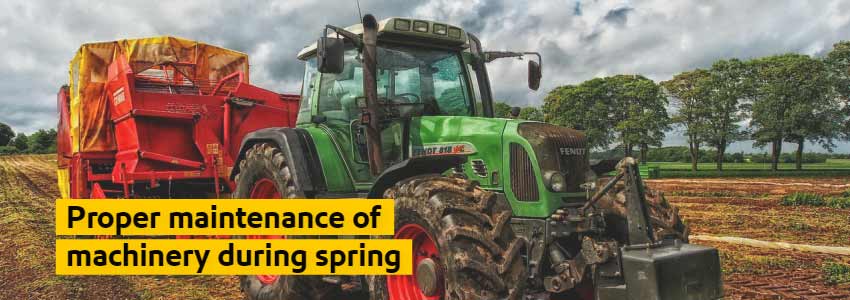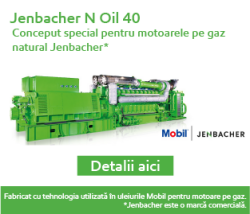Proper maintenance of machinery during spring
 Proper maintenance of machinery during spring
Proper maintenance of machinery during spring
The maintenance of agricultural machinery must be made strictly, on a regular basis, following a well-organized schedule. A well-thought production involves effective actions during every period of the year. However, spring is the crucial moment in this cycle, as the main activities for agricultural land maintenance happen during this period.
It is recommended that agricultural machinery to receive the necessary treatment before spring, to be prepared for a new season of work that is uninterrupted by unscheduled maintenance breaks.
How to prepare the agricultural machinery for spring?
Performing the periodic inspection and repairing faults are the two main actions that must be taken during this period. The development of an annual inspection schedule is very simple and practical and can help you avoid in advance any possible faults.
Here is what you should do to make sure the machinery you use will give maximum efficiency:
- Keep the machinery in dry conditions and out of extreme temperatures during periods of inactivity.
- Start the machinery engines at regular intervals and observe their temperature.
- Check oil level and change the oil at the correct time intervals, according to a form that must be strictly filled in by you or your employees.
- Check the antifreeze and coolant levels as a preventive measure before each start.
- Check belts and replace those that are weakened.
- Provide the engine sufficient time to adapt after long periods of inactivity.
Moreover, pay attention to the following issues during checks:
- Status of: radiator, water pump, cylinder head, connections and fuses;
- Inspection in order to detect possible oil leaks;
- Status of: battery, generator and alternator;
- Status of the gearbox and filters (oil and air);
- Detection of any sound or abnormal behavior.
The most important steps in machinery maintenance
It is important that agricultural machinery be fully functional before starting work. Thus, you avoid downtime and save money, fuel and power.
To achieve a fair and effective maintenance process, you must choose the best lubricant for your machinery’s needs. Viscosity index, performance and compatibility level of the lubricant with the needs of the machinery’s engine are elements that influence the way in which it will be protected against wear.
Using the right lubricant has positive effects such as:
- Low maintenance costs
- Increased uptime at full capacity
- Increased engine performance
- Removal of contaminants from the system
- Low operating temperature
Synthetic lubricants are preferred to the mineral ones in the case of agricultural machinery, as well as for other equipment. They have a much higher viscosity level and a greater power to protect against degradation. If you want to regularly implement a correct maintenance process, keep in mind all these tips that can save you long-term costs.
To learn more about choosing the best lubricants for agricultural machinery, click on the image below and contact a Star Lubricants representative who will give you all the information you need.







